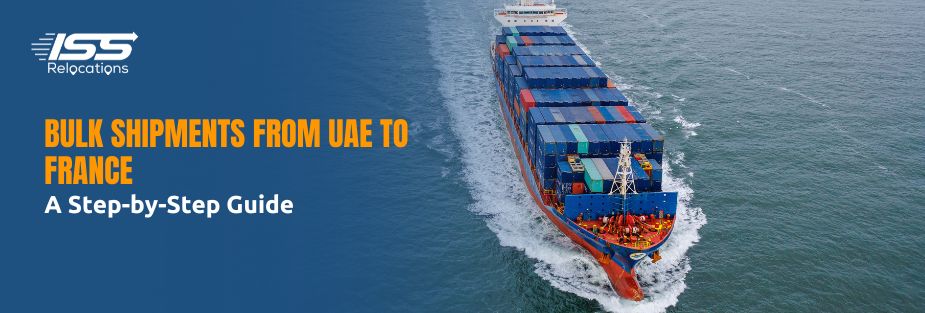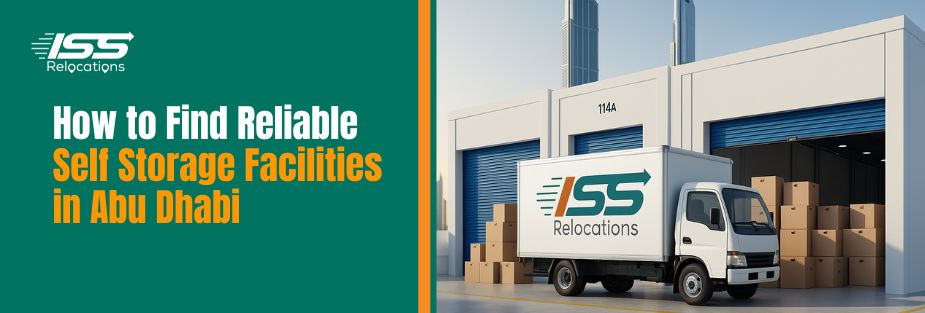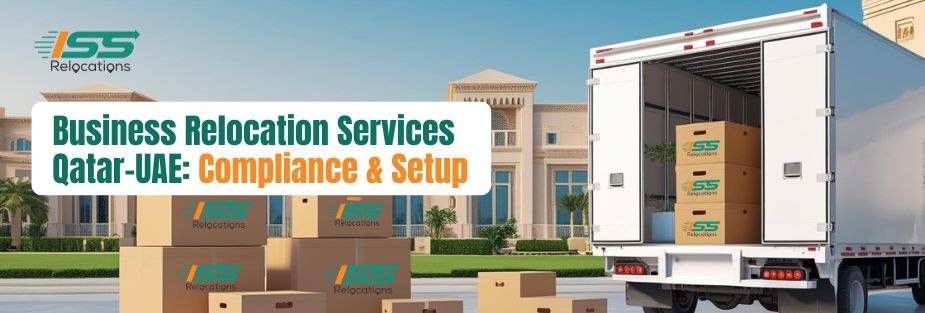
Bulk Shipments from UAE to France: A Step-by-Step Guide
Bulk shipments play a crucial role in global trade, enabling businesses to transport large volumes of goods efficiently and cost-effectively. For exporters in UAE, France is a key trading partner, offering opportunities in various industries, from oil and gas to consumer goods. However, navigating the complexities of international shipping requires careful planning, compliance with regulations, and the selection of the right logistics strategy.
Shipping in bulk presents unique challenges, such as customs clearance, packaging requirements, and transportation costs. Understanding the process can help businesses optimize their supply chain, reduce expenses, and ensure timely deliveries. This guide provides a step-by-step breakdown of how to manage bulk shipments from UAE to France, covering shipping methods, documentation, costs, and best practices.
Understanding Bulk Shipments
Bulk shipments refer to the transportation of large quantities of goods in a single shipment, reducing per-unit costs and streamlining logistics. This method is commonly used for industrial materials, agricultural products, machinery, and raw materials.
What Qualifies as a Bulk Shipment?
A bulk shipment typically consists of goods transported in large volumes without individual packaging. Instead of being packed in small containers, these goods are shipped in bulk carriers, large containers, or specialized cargo holds. They may include dry bulk (such as grains, coal, and cement) or liquid bulk (such as oil and chemicals).
For businesses exporting from UAE to France, bulk shipping is a preferred choice for industries dealing with large-scale manufacturing and distribution. It ensures efficient handling, lower freight costs, and a streamlined supply chain.
Types of Goods Shipped in Bulk
Different industries rely on bulk shipping to transport their products internationally. Some of the most common bulk shipments between UAE and France include:
Industrial and Construction Materials
Materials like steel, cement, and glass are shipped in bulk for large-scale infrastructure projects. The demand for these products in France makes bulk transportation an efficient option.
Oil and Petrochemical Products
The UAE’s energy sector exports large volumes of crude oil, refined products, and chemicals to France, although the country also ships high-value goods across various sectors. These goods require specialized bulk shipping methods, such as tanker vessels.
Food and Agricultural Commodities
Bulk shipments of grains, sugar, and other food products help support France’s food processing industry. These goods are typically transported in large containerized shipments or bulk cargo carriers.
Advantages of Bulk Shipping
Businesses choose bulk shipments for their numerous benefits, including cost savings, streamlined logistics, and reduced environmental impact.
Lower Transportation Costs
By consolidating goods into a single shipment, businesses minimize per-unit shipping expenses, making it more economical than multiple smaller shipments.
Efficient Handling and Storage
Bulk cargo requires specialized handling equipment, which speeds up loading and unloading times, reducing delays at ports.
Reduced Packaging Waste
Since bulk shipments eliminate excessive packaging, they contribute to sustainability efforts and reduce material costs.
Moving To France?
Begin Your Stress-Free Relocation Journey Today – Request A Quote Now!
Choosing the Right Bulk Shipping Method
Selecting the most suitable shipping method depends on the type of goods, budget, and delivery timeline. Businesses must assess their cargo requirements to determine the best bulk shipping strategy.
Containerized Bulk Shipping
This method involves transporting bulk goods in large shipping containers. It is ideal for commodities that require protection from environmental factors, such as packaged food products, electronics, and textiles. Containerized shipping is widely used for its security, convenience, and ease of tracking.
Breakbulk Shipping
Breakbulk shipping is used for oversized or irregularly shaped goods that do not fit into standard containers. Instead, they are loaded onto cargo ships piece by piece. This method is suitable for heavy machinery, construction materials, and large industrial equipment.
Liquid and Dry Bulk Shipping
For goods that need to be transported in their raw form, such as crude oil, chemicals, or grains, specialized bulk carriers are used. Dry bulk carriers handle solid commodities, while liquid bulk tankers transport oil, gas, and other liquids.
Ro-Ro Shipping
Roll-on/Roll-off (Ro-Ro) shipping is designed for vehicles, heavy machinery, and other wheeled cargo. Instead of being loaded in containers, these goods are driven onto the vessel, secured for transit, and driven off upon arrival.
Choosing the right bulk shipping method ensures efficiency, cost-effectiveness, and compliance with international shipping regulations. Understanding the available options allows businesses to optimize their supply chain and avoid unnecessary delays.
Documentation and Compliance Requirements
Bulk shipments require precise documentation and strict compliance with international trade regulations to ensure smooth transportation from UAE to France. Missing or incorrect paperwork can lead to costly delays, penalties, and cargo seizures. Understanding the required documents and customs regulations helps businesses streamline their shipping process and avoid legal complications.
Essential Shipping Documents
Proper documentation is crucial for bulk shipments to move efficiently across borders. Exporters must prepare and verify all necessary paperwork before dispatching cargo.
Bill of Lading
The Bill of Lading (BOL) serves as a contract between the shipper and the carrier. It outlines the details of the shipment, including the type of cargo, weight, destination, and terms of transport. This document is essential for clearing customs in both UAE and France.
Commercial Invoice
A commercial invoice provides a detailed breakdown of the goods being shipped, their value, and payment terms. French customs authorities use this document to assess import duties and taxes on bulk shipments. Ensuring accuracy in the invoice prevents discrepancies that could delay clearance.
Packing List
A packing list offers a comprehensive inventory of the shipment, specifying the quantity, dimensions, and weight of each item. Customs officers refer to this document to verify that the cargo matches the information provided in other shipping documents.
Certificate of Origin
The Certificate of Origin certifies that the goods originate from UAE. This document is necessary to determine tariff rates and ensure compliance with trade agreements between UAE and France.
Import and Export Licenses
The UAE classifies some items—such as electronics, chemicals, and foodstuffs—as restricted or controlled, requiring advance approvals. Bulk shipments of controlled items, such as chemicals or agricultural products, may need additional licensing from the respective authorities.
Customs Regulations for Bulk Shipments
Strict adherence to customs regulations prevents delays and penalties when transporting bulk cargos internationally. Businesses must familiarize themselves with both UAE export laws and French import policies.
UAE’s Export Regulations
The UAE maintains a structured export regulation system to facilitate trade and ensure compliance with international agreements. Exporters must obtain necessary approvals, especially for bulk cargos involving restricted goods like petroleum products, chemicals, or food commodities.
French Import Requirements
France has specific import policies that apply to bulk shipments. Customs duties, VAT, and other taxes are levied based on the nature of the cargo. Importers must comply with European Union (EU) trade regulations, which include safety standards, product labeling, and environmental guidelines.
Duties and Taxes
Bulk shipments are subject to various taxes and fees, including customs duties, VAT, and handling charges. The amount payable depends on the cargo classification under the Harmonized System (HS) codes. Businesses should calculate these costs in advance to avoid unexpected financial burdens.
Customs Clearance Process
The customs clearance process involves submitting all required documentation, undergoing cargo inspections, and paying applicable duties. Delays often occur when documents are incomplete or incorrect, so ensuring accuracy is critical for a smooth clearance. Partnering with an experienced logistics provider simplifies this process.
Packaging and Handling Considerations
Proper packaging and handling are essential for bulk shipments to ensure cargo safety, minimize damage, and comply with international shipping standards. Since bulk cargos often involve large quantities of goods, businesses must adopt the right packaging strategies and handling techniques to maintain product integrity throughout transit.
Effective Packaging Strategies
The right packaging protects bulk shipments from damage, contamination, and environmental factors. Businesses must select materials and methods that suit the type of cargo being transported.
Containerized Packaging
Using containers is a common method for securing bulk cargos. Goods are packed into large shipping containers, protecting them from moisture, dust, and external impacts. This method is ideal for transporting dry bulk goods, such as grains, cement, and consumer products.
Palletized Packaging
Palletization involves stacking cargo on pallets for easier handling and transportation. This method allows for better weight distribution, reducing the risk of cargo shifting during transit. Palletized packaging is commonly used for fragile or high-value bulk shipments.
Industrial-Grade Wrapping
Industrial wrapping, such as shrink wrap or stretch film, adds an extra layer of protection to bulk cargos. This method is often used for goods requiring stabilization and waterproofing, such as chemicals, food products, and machinery parts.
Safety Measures for Bulk Cargo
Ensuring the safety of bulk cargos requires adherence to best practices in cargo handling. Businesses must implement proper loading, unloading, and storage techniques to prevent losses and delays.
Weight Distribution and Load Balancing
Uneven weight distribution can cause cargo instability, leading to damage or accidents during transit. Businesses should evenly distribute weight within containers or cargo holds to ensure balance and safe transportation.
Moisture and Temperature Control
Certain bulk shipments, such as food products and chemicals, require controlled environments to maintain quality. Temperature-sensitive goods must be shipped in climate-controlled containers, while moisture-sensitive cargo should be protected with desiccants and waterproof coverings.
Labeling and Identification
Proper labeling is mandatory for international bulk cargos. Labels should include information such as cargo type, handling instructions, and destination details. Clear labeling ensures that customs authorities and freight handlers can process shipments efficiently.
Handling Techniques for Bulk Shipments
Bulk shipments require specialized handling techniques to prevent damage and ensure smooth operations. Businesses must work with experienced freight handlers to implement proper cargo management practices.
Automated Cargo Handling
Using automated systems such as conveyor belts, cranes, and forklifts improves the efficiency of loading and unloading bulk shipments. Automated handling reduces labor costs and minimizes the risk of human error.
Manual Handling for Fragile Cargo
Certain bulk cargos require careful manual handling to prevent damage. Fragile items, such as glassware or precision machinery, should be handled with protective padding and slow-motion transport methods.
Secure Fastening and Lashing
To prevent shifting during transit, bulk shipments must be properly secured using straps, nets, and braces. Secure fastening reduces movement inside containers or cargo holds, minimizing the risk of damage.
Efficient packaging and handling practices are essential for the successful transportation of bulk cargos from UAE to France. Proper planning ensures cargo safety, compliance with international shipping standards, and smooth delivery timelines.
Cost Factors in Bulk Shipments
Bulk shipments offer cost advantages for businesses looking to transport large volumes of goods efficiently. However, managing expenses requires a thorough understanding of various cost factors, including freight charges, tariffs, and storage fees. By optimizing shipping strategies, businesses can reduce overall transportation costs and improve profitability.
Freight Charges and Surcharges
The cost of freight depends on multiple factors, including cargo volume, transportation mode, and fuel prices. Shipping companies determine freight charges based on the weight and dimensions of bulk cargos, as well as the distance between UAE and France.
Ocean Freight Costs
For sea transport, costs vary based on container size, cargo type, and additional services such as expedited shipping. Full container loads (FCL) are more economical for bulk shipments, while less-than-container loads (LCL) may incur higher per-unit costs.
Fuel and Security Surcharges
Fluctuations in fuel prices affect shipping costs, as carriers adjust rates based on global fuel markets. Security surcharges may also apply, particularly for shipments passing through high-risk areas.
Peak Season Pricing
Shipping costs tend to rise during peak seasons when demand for cargo space increases. Businesses should plan shipments in advance to avoid price surges during busy trade periods.
Tariffs and Customs Duties
Bulk shipments between UAE and France are subject to tariffs and import duties imposed by French customs authorities. These charges vary based on the type of goods, their country of origin, and applicable trade agreements.
Harmonized System (HS) Codes
Each product category is assigned an HS code, which determines the duty rates applicable to imported goods. Businesses must classify their cargo correctly to calculate tariff costs accurately.
Value-Added Tax (VAT) and Additional Fees
France applies a VAT on imported goods, calculated as a percentage of the shipment’s declared value. Additional fees may include port handling charges, inspection fees, and environmental levies for certain commodities.
Cost Optimization Strategies
Reducing shipping costs involves selecting the most efficient transportation method, consolidating shipments, and negotiating better rates with logistics providers.
Shipment Consolidation
Combining smaller shipments into a single bulk shipment reduces per-unit transportation costs and minimizes customs clearance expenses.
Efficient Route Planning
Choosing direct shipping routes reduces transit times and lowers costs associated with multiple handling points. Working with experienced freight forwarders helps businesses identify the most cost-effective shipping routes.
Choosing a Reliable Logistics Partner
Managing bulk shipments requires expertise in logistics, customs regulations, and supply chain coordination. Selecting a reliable logistics partner ensures smooth transportation, timely delivery, and compliance with international trade laws. Businesses must assess key factors when choosing a logistics provider to handle shipments from UAE to France.
Key Factors to Consider
Logistics providers play a crucial role in handling bulk shipments, from loading and transportation to customs clearance and final delivery. Choosing the right partner can prevent delays, reduce costs, and improve operational efficiency.
Industry Experience and Reputation
A logistics provider with extensive experience in international bulk cargos understands the challenges of cross-border trade. Businesses should evaluate a provider’s track record, client testimonials, and industry certifications before making a decision.
Global Network and Local Expertise
A well-established logistics partner should have strong connections with shipping lines, customs authorities, and warehousing facilities in both UAE and France. Local expertise ensures seamless customs clearance and efficient cargo handling.
Technology and Tracking Capabilities
Real-time shipment tracking enhances visibility and helps businesses monitor the progress of bulk shipments. Logistics providers that offer advanced tracking systems enable clients to anticipate potential delays and adjust supply chain operations accordingly.
How ISS Relocations Ensures Smooth Bulk Shipments
ISS Relocations specializes in handling international bulk shipments with efficiency and reliability. The company provides comprehensive logistics solutions, including freight forwarding, customs clearance, and cargo management.
Customs Compliance and Regulatory Support
Navigating international shipping regulations can be complex, but ISS Relocations simplifies the process by ensuring compliance with all necessary documentation and legal requirements.
End-to-End Logistics Solutions
From packaging and storage to final delivery, ISS Relocations manages every aspect of bulk shipments, reducing the burden on businesses and ensuring smooth operations.
Competitive Pricing and Cost Efficiency
With extensive industry partnerships and optimized logistics strategies, ISS Relocations helps businesses minimize shipping costs while maintaining high service standards.
Shipping Timeline and Delivery Process
Timely delivery is a critical factor in international trade, especially for businesses relying on bulk shipments to maintain inventory levels and meet customer demands. Understanding the shipping timeline and delivery process helps businesses plan their supply chain more effectively.
Average Transit Time from UAE to France
The total shipping time for bulk shipments depends on factors such as the chosen transport method, port congestion, and customs clearance procedures.
Ocean Freight Transit Time
For sea transport, bulk cargos from UAE to France typically take between 20 to 30 days, depending on the shipping route and port traffic conditions. Delays may occur due to weather disruptions or customs inspections.
Air Freight Transit Time
Although air freight is not commonly used for bulk shipments, it offers faster transit times, typically ranging from 3 to 7 days. However, air transport is significantly more expensive than ocean shipping.
Steps Involved in the Shipping Process
Bulk shipments go through multiple stages, from initial booking to final delivery. Understanding these steps helps businesses streamline their logistics operations.
Cargo Booking and Documentation
The process begins with booking cargo space with a shipping carrier. Businesses must provide necessary documentation, including the Bill of Lading, commercial invoice, and packing list, to initiate shipment processing.
Freight Forwarding and Loading
Once documentation is complete, cargo is transported to the designated port or warehouse for loading. Freight forwarders coordinate with shipping lines to ensure that bulk shipments are securely loaded onto vessels or aircraft.
Customs Clearance and Inspection
Upon arrival in France, bulk cargos must pass through customs clearance, where authorities inspect the cargo, verify documentation, and assess import duties. Efficient customs procedures minimize delays and ensure smooth entry into the French market.
Final Delivery and Distribution
After clearing customs, bulk cargos are transported to their final destination via trucking or rail. Businesses may choose direct delivery to warehouses or distribution centers based on their supply chain requirements.
Tracking and Monitoring Bulk Shipments
Real-time tracking allows businesses to monitor the movement of bulk shipments and anticipate potential delays. Logistics providers use advanced tracking systems to provide regular updates on cargo status.
GPS and Satellite Tracking
Many shipping carriers offer GPS-enabled tracking, allowing businesses to monitor the exact location of their cargo at any given time.
Automated Notifications and Alerts
Logistics providers send automated alerts for key milestones, such as cargo departure, customs clearance, and expected delivery dates.
Data Analytics for Performance Optimization
Analyzing shipping performance data helps businesses identify inefficiencies and optimize future bulk shipments for better cost savings and reliability.
Ensuring a well-structured shipping timeline and delivery process is essential for minimizing risks and improving supply chain efficiency. Working with a trusted logistics provider like ISS Relocations enhances visibility, security, and overall shipment reliability.
Wrapping Up
Bulk shipments are an efficient and cost-effective solution for businesses looking to transport large volumes of goods between UAE and France. By understanding the shipping process, selecting the right transportation method, and ensuring compliance with international regulations, businesses can streamline their logistics operations and minimize shipping costs.
Managing bulk cargos requires careful planning, from packaging and customs documentation to freight forwarding and final delivery. Businesses must choose reliable logistics partners to handle cargo efficiently and prevent costly delays. Factors such as shipping costs, customs duties, and cargo handling techniques play a significant role in optimizing international bulk trade.
Working with a trusted logistics provider like ISS Relocations ensures smooth bulk shipments with end-to-end support, including customs clearance, cargo tracking, and secure transportation. With expertise in international logistics, ISS Relocations helps businesses navigate complex shipping requirements, reducing risks and improving supply chain efficiency.
For businesses planning bulk cargos from UAE to France, strategic logistics management is key to maintaining smooth trade operations. Whether shipping industrial materials, consumer goods, or specialized cargo, choosing the right shipping method and a dependable logistics partner will ensure a hassle-free shipping experience.
You May Also Like
Plan Stress-free Move with Top Moving Company in UAE - ISS Relocations

Frequently Asked Questions
What is considered a bulk shipment?
A bulk shipment refers to the transportation of large quantities of goods in a single shipment, typically without individual packaging. These goods can be shipped as dry bulk, liquid bulk, or breakbulk cargo, depending on the nature of the products being transported.
How long does bulk shipping from UAE to France take?
The transit time for bulk shipments varies based on the transportation method. Ocean freight generally takes between 20 to 30 days, while air freight, though less common for bulk cargos, can take between 3 to 7 days. Customs clearance and port congestion may also impact shipping timelines.
What documents are required for bulk shipments from UAE to France?
Key documents for bulk shipments include the Bill of Lading, commercial invoice, packing list, Certificate of Origin, and any necessary import or export licenses. Ensuring accurate documentation helps prevent customs delays and additional charges.
How can I reduce costs when shipping in bulk internationally?
Businesses can lower shipping costs by consolidating shipments, optimizing cargo space, selecting cost-effective routes, and working with experienced freight forwarders. Negotiating better freight rates and avoiding peak shipping seasons also helps reduce expenses.
What is the best shipping method for bulk cargo?
The best method for bulk shipments depends on the type of goods. Containerized shipping is suitable for packaged goods, breakbulk shipping works well for oversized cargo, and tanker ships are ideal for liquid bulk transport. Businesses should assess cargo needs before selecting a shipping method.
Do I need insurance for bulk shipments?
Yes, insurance is highly recommended for bulk cargos to protect against potential risks such as cargo damage, loss, or delays. Coverage options vary, so businesses should choose policies that align with the value and nature of their shipments.
How does ISS Relocations help with bulk shipments?
ISS Relocations offers comprehensive logistics solutions for bulk cargos, including freight forwarding, customs clearance, secure packaging, and real-time tracking. With expertise in international shipping, ISS Relocations ensures smooth cargo transportation between UAE and France.
Moving Company - Recent Blog
Stay informed and prepared for your next move with our latest blogs on moving services in the UAE. From expert packing tips to international relocation guides, ISS Relocations brings you up-to-date insights to make your moving experience smoother, safer, and stress-free.










